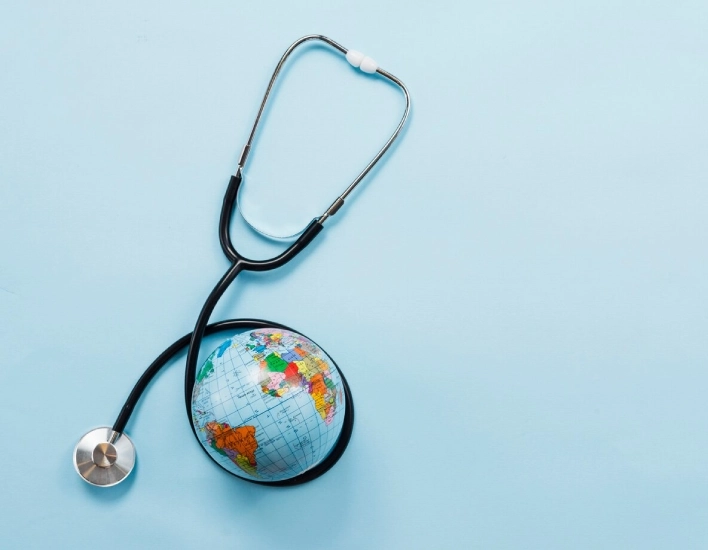
Why the Legal & Medical Fields Need Expert Translators
- Developer
- April 6, 2025
- Translation
- 0 Comments
In today’s interconnected world, the need for precise and culturally sensitive communication across languages has never been more urgent. Businesses, institutions, and professionals operating in specialized sectors such as the legal and medical fields must ensure their content is translated with an exceptional level of accuracy and integrity. Unlike general translation tasks, industry-specific translation demands a deep understanding of technical terminology, legal systems, or medical protocols. A single error in these fields can lead to major consequences, ranging from invalid contracts and lawsuits to misdiagnoses and health risks.
At Alef Creates, we are deeply committed to delivering industry-specific translation services that uphold accuracy, compliance, and cultural relevance. This article explains why expert translators are essential for legal and medical translations and how businesses that rely on professional, niche-focused services gain a strong competitive edge—both in the Gulf region and beyond.
What is Industry-Specific Translation?
Industry-specific translation refers to the practice of translating documents that require more than just language fluency—it involves field-specific expertise. Professionals in this space must understand not only grammar and vocabulary but also the technical language and compliance requirements of the industry they are translating for. It’s a high-stakes environment where even small misinterpretations can trigger legal action or jeopardize someone’s health and safety.
The translator must be familiar with the field’s terminology, tone, and context—whether it’s legal frameworks, ethical codes, medical diagnosis language, or pharmaceutical terminology. This kind of translation is as much about specialized knowledge as it is about linguistic skill. For brands targeting specific markets, this is especially important. Learn more about the importance of message clarity in niche markets by reading our guide on how to write copy that translates well in the UAE market.


Why Does Legal Translation Require Specialized Experts?
Legal translation goes far beyond simply converting words from one language to another. It involves translating meaning within the constraints of national and international law, using terminology that is often complex, nuanced, and varies widely across jurisdictions. Legal documents such as contracts, agreements, patent filings, and court documents carry binding authority. A single word translated inaccurately can completely alter the legal implications of the content, leading to lawsuits, regulatory penalties, or a total breakdown of trust between parties.
Another layer of complexity in legal translation is the variance in legal systems between countries. A term used in the Saudi legal system, for example, might not have a direct equivalent in English or in other jurisdictions. That’s why working with legal translators who are familiar with both source and target legal systems is critical. Additionally, confidentiality is a fundamental part of the process—legal translators must handle sensitive information with care, in compliance with international data protection standards.
Common Legal Documents That Require Expert Translation:
- Non-disclosure agreements (NDAs)
- Partnership and shareholder agreements
- Terms and conditions for websites or services
- Immigration and visa paperwork
- Intellectual property documentation and patent filings
Court decisions and legal transcripts
➡️ For businesses seeking expert support, we recommend exploring our translation services in Dubai—a hub for international legal, tech, and healthcare companies.
Professional associations like the American Translators Association (ATA) certify translators who meet global standards of quality and ethics in legal translation.
What is Medical Translation and Why is Accuracy Critical?
Medical translation involves translating highly technical documents that affect people’s health and well-being. This includes clinical reports, patient records, informed consent forms, prescription labels, and even research publications. Accuracy in medical translation is not just a matter of professionalism—it’s a matter of life and death. A poorly translated dosage instruction or medical diagnosis can result in delayed treatment, patient harm, or legal liability for healthcare providers.
Translators working in the medical field must have a comprehensive understanding of medical terminology, disease pathology, pharmacology, and healthcare systems in both the source and target languages. Additionally, they must stay updated with ever-evolving medical protocols and drug names that may differ across countries. There is no room for vague interpretations—clarity and precision are critical.
Types of Medical Documents That Require Expert Translation:
- Hospital discharge summaries and medical records
- Patient consent forms for surgeries or treatments
- Clinical trial documentation and research reports
- Regulatory submissions for new pharmaceutical products
Instructions for medical devices and equipment manuals
Research by the U.S. National Library of Medicine has shown that language barriers significantly impact healthcare access and patient safety. Patients with limited language proficiency are more likely to experience misdiagnosis or inadequate care, making expert translation an essential part of a functioning, ethical healthcare system.
How to Choose a Trusted Translation Partner for Legal and Medical Fields
Choosing the right translation partner is not about finding the cheapest or fastest option. It’s about finding a team that understands the stakes involved in legal and medical communications. Your provider should meet high standards for E-E-A-T: Experience, Expertise, authority, and Trustworthiness.
What to Look for in a Translation Partner:
Certified Translators
Professional translators should hold certifications such as those issued by the ATA or meet ISO 17100 standards. These certifications demonstrate a proven ability to translate complex materials accurately and ethically.Field-Specific Knowledge
Experience in legal or medical fields is crucial. You need a translator who understands not just words, but context—such as how laws are applied or how diagnoses are communicated.Data Security and Confidentiality
Whether you’re handling patient data or corporate contracts, secure handling of your documents is a must. Ask about encryption, NDAs, and compliance with international privacy regulations like GDPR or HIPAA.Cultural and Linguistic Localization
Tone, terminology, and presentation must be localized to the region and audience you’re targeting. For example, a health awareness brochure translated for Saudi Arabia should reflect local cultural norms as well as linguistic accuracy.
➡️ At Alef Creates, we’re proud to offer tailored solutions for your legal or healthcare translation needs. Learn more about our Arabic localization services designed for the Gulf region.
Benefits of Industry-Specific Translation for Your Business
Engaging expert translators with industry-specific expertise brings far-reaching benefits to your organization. Aside from avoiding costly errors and regulatory risks, your business also earns greater trust and expands more confidently into new markets.
Business Advantages Include:
- ✅ Regulatory compliance with national and international laws
- ✅ Fewer legal disputes or operational delays due to miscommunication
- ✅ Higher trust levels from partners, patients, and clients
- ✅ Faster expansion into multilingual markets
- ✅ Improved internal and external communication across global teams
Your messaging becomes more than just understandable—it becomes persuasive, precise, and impactful.
Take the Next Step with Alef Creates
Industry-specific translation is not just a best practice—it’s a business-critical necessity. Whether you’re a law firm drafting bilingual contracts or a hospital treating multilingual patients, accurate translation is key to compliance, safety, and professional reputation.
At Alef Creates, we connect you with seasoned translators who understand your industry inside out. From legal clauses to medical instructions, we help you communicate with clarity and confidence across borders and languages.
Ready to elevate your communication?
Let’s talk about how we can support your legal or medical projects with expert translation solutions.
Frequently Asked Questions (FAQs)
01 What is the difference between general and industry-specific translation?
General translation handles everyday content with simple language, while industry-specific translation focuses on content that demands deep subject-matter expertise and regulatory understanding.
02 How do I know if I need a specialized translator?
If your content includes legal, medical, or technical material that could cause harm, misunderstanding, or non-compliance when mistranslated, you need a specialized translator.
03 Are machine translations reliable for legal or medical documents?
No. While machine translation tools may work for informal content, they are not reliable for fields that require precision. Misinterpretation in legal or medical documents can lead to serious consequences.
04 What qualifications should a legal translator have?
A qualified legal translator should be certified by a recognized organization like the ATA, be fluent in both legal systems involved, and have documented experience translating legal materials.
05 How does Alef Creates ensure confidentiality in sensitive projects?
We apply strict protocols including NDAs, secure data handling systems, and exclusive access for trained professionals. Your legal and medical documents are always in safe hands.






